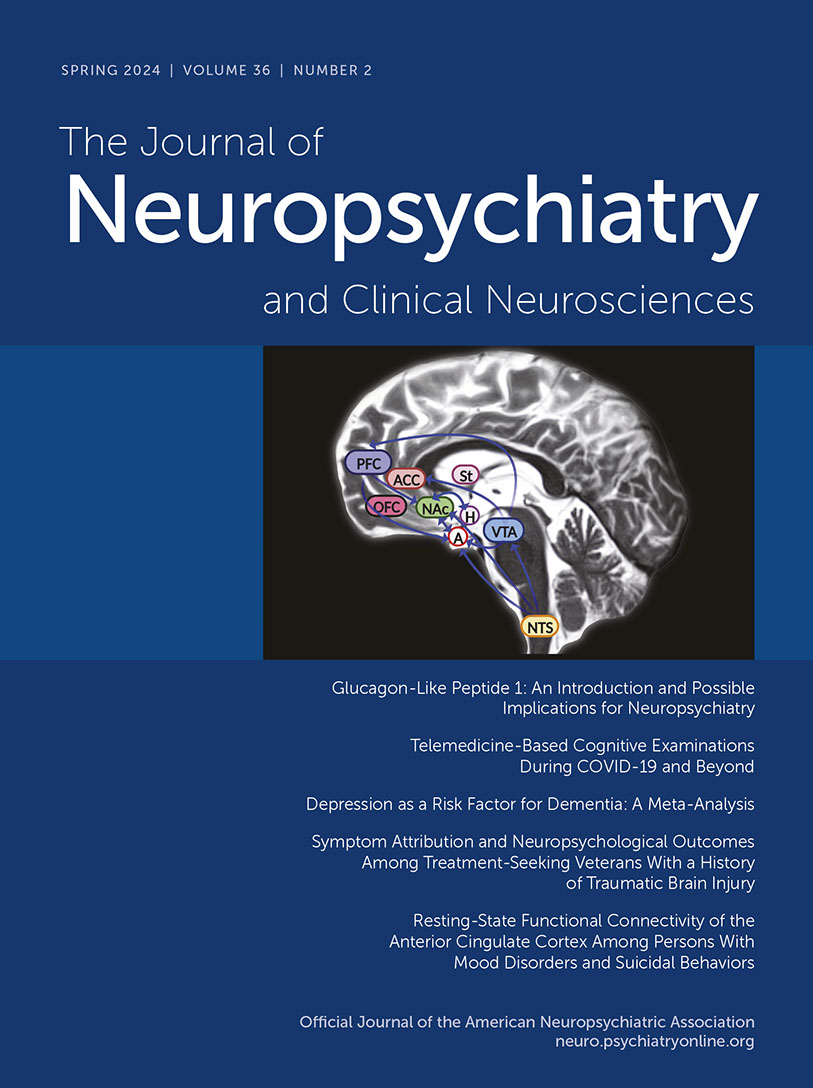A Web-Based Educational Module Using Clinical Neuroscience to Deliver the Diagnosis of Functional Neurological Disorder
Abstract
Neuroscience-based patient education has become an evidence-based strategy for enhancing chronic pain treatment. Advances in understanding the neuroscience of functional neurological disorder (FND) may allow similar approaches to be developed and disseminated to clinicians, given the public health need for greater provider awareness and expertise around the condition. Accordingly, the authors developed an online video module for clinicians that delivers neuroscience-based psychoeducation for FND and assessed whether the intervention would be associated with changes in clinicians’ perception of FND patients and knowledge about the condition. The online intervention consisted of a 20-minute video module, including an 8-minute scripted role-play that modeled neuroscience-informed diagnosis delivery. Pre- and postintervention questionnaires were embedded into the online module and included a self-assessment of FND-related perceptions and knowledge and a multiple-choice assessment of retention of the neuroscience-based content. Wilcoxon signed-rank tests and McNemar’s tests were used for statistical analyses. Of the 103 individuals who submitted surveys, 40 participants provided a complete data set from before and after the intervention. Following the intervention, self-assessment items showed respondents had significantly greater comfort with diagnosis delivery and treatment options and decreased negative perception of FND patients. The percentage of correct responses on a multiple-choice assessment regarding the functional neuroanatomy of FND was significantly increased. In summary, the online neuroscience-based educational intervention was effective for increasing clinician knowledge about FND and comfort with diagnosis delivery and treatment options. Implementing web-based formats may be a viable and cost-effective approach to disseminating knowledge and basic clinical skills in the care of patients with FND.
Access content
To read the fulltext, please use one of the options below to sign in or purchase access.- Personal login
- Institutional Login
- Sign in via OpenAthens
- Register for access
-
Please login/register if you wish to pair your device and check access availability.
Not a subscriber?
PsychiatryOnline subscription options offer access to the DSM-5 library, books, journals, CME, and patient resources. This all-in-one virtual library provides psychiatrists and mental health professionals with key resources for diagnosis, treatment, research, and professional development.
Need more help? PsychiatryOnline Customer Service may be reached by emailing [email protected] or by calling 800-368-5777 (in the U.S.) or 703-907-7322 (outside the U.S.).



